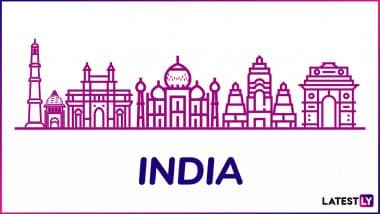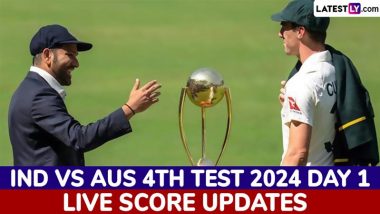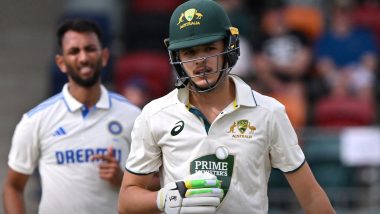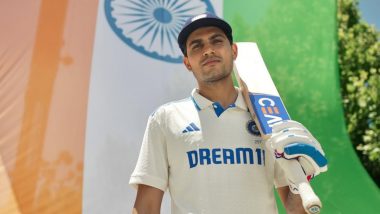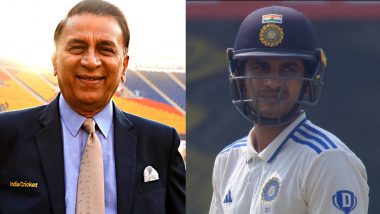New Delhi [India], Dec 26 (ANI): The Congress on Thursday said that the National Population Register (NPR) conducted during the UPA government enumerated the "usual residents" of country and accused the BJP government of trying to bring the National Register of Citizens (NRC) "in the guise of NPR". Addressing a press conference here, Congress leader Ajay Maken said that an amendment was made in the Citizenship Act in 2003 that the government may compulsorily register every citizen. He said another provision was added that the government may maintain a National Register of Indian Citizens. Maken said that rules were notified to implement the amendments and the then BJP-led government rolled out a pilot project to make identity cards of citizens in November 2003.Maken said that a Congress-led government assumed office in 2004 and a Committee of Secretaries in 2006 found that the process was "cumbersome." He said that an eGOM (Empowered Group of Ministers) took a view on the report of the Committee of Secretaries and decided that the pilot project will not be extended to give identity-cards. "NPR is a set of citizens and non-citizens whereas the NRC is a subset of NPR only for citizens. We never walked towards the second step. We never wanted to create NRC because the pilot project was going on. We found that it is not practically possible. We stopped that pilot project and instead put up full attention to the first step which was the creation of NPR without having any intention to going for the second step," he said."In ten years of our Government, we did not start the second step. Rather we stopped the pilot project," he added.The Congress leader said the NPR brought by the Congress in no case would have led to the NRC.Maken said the NPR conducted during the UPA government had 14 questions "which are essential to know a usual resident" and its definition was based on that of the United Nations.Referring to questions, he said it had asked: "Name of person as should appear in the National Population Register, relationship to the head of the family, sex, date of birth, marital status, educational qualification, occupation/activity, father's name, spouse's name were among the simple questions asked." The former Union Minister said the pre-test form for NPR 2020 was circulating on social media and has been cited in media reports and has not been denied by the government. He said it has the question 'if father, mother and spouse are not enumerated in this household or not alive, write their names along with the date of birth'.Maken said it also states 'place of birth of father and mother if within India, write the name of the state and district if outside India, write the name of the country and district.'Maken said another aspect which directly impacts the private life of citizens is that the pre-test form seeks information about Aadhar number, mobile number, voter ID and driving license number, if available. "All these questions are what are required for the NRC and in no way, the questions, which they have added are required for usual residents. The definition of the usual resident does not require additional information, which they are seeking now. Why they are seeking additional information for usual residents for which it is not required at all," he asked."This is the clear conspiracy that the government is presenting NRC in the guise of NPR," he said. He said that Clause 14(A) of the Citizenship Amendment Act clearly says the government 'may' compulsorily register citizen.The Congress leader said the NRC would have been a subset of NPR but the UPA government did not take that step. Referring to remarks of then Minister of State for Home Jitendra Singh, Maken said that he was referring to a simple fact derived out of the Citizenship Act 2003."NRC is a second step which we never intended to take. That is the part of the Amendment of the Citizenship Act that took place in 2003. The amendment to Citizenship Act carried out in 2003 has two very important elements. The first element is that the government may compulsorily register, it is 'may'. This 'may', we never converted into 'shall' and we will never convert it into 'shall' because we know the complexities," he said."And the second thing is that the government may maintain a National Register for Indian citizens. So, we were never in favour of making this 'may' into 'shall. We started NPR and carried it out to its logical conclusion," he said.Maken said the government should come clean on what exactly the NPR schedule is and how they are going to canvass the NPR.Answering a query, he said that "if available" mentioned in the form could not be construed as a voluntary option for the people not give their Aadhar number and other details. (ANI)
(This is an unedited and auto-generated story from Syndicated News feed, LatestLY Staff may not have modified or edited the content body)



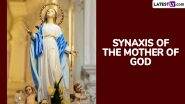
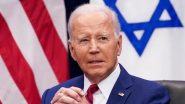
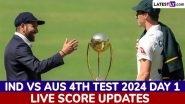


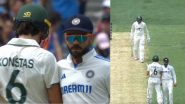
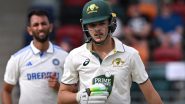
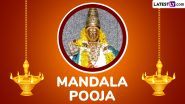
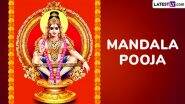

 Quickly
Quickly








